A former future project has turned into reality much faster than expected: The Fourth Industrial Revolution (or Industry 4.0) continues to shape industrial manufacturing. The term Industry 4.0 refers to central technologies connecting machines, processes and organizations via internet on a global scale with the objective of automation by using modern smart technology. Initially started as the advent of information technologies based on desktop PCs, office IT and the first computer-based automation systems in the 1970s has now developed into a highly complex digital industry.

Eva Schönleitner, our recent guest in the Business Class podcast, has been CEO of crate.io since September 2020
The basis for the Industrial Internet of Things (IIoT) is the reliable processing of huge amounts of data. Crate.io, one of the most promising companies in the field of Industry 4.0, is an Austrian scale-up from Vienna. In the current podcast episode of Business Class PIABO’s CEO Tilo Bonow talks to Eva Schönleitner, who has been CEO of crate.io since September 2020. In this episode Eva evaluates new promising advancements in the industry, while giving insights into crate.io’s company culture and talking about her idea of how start-ups and corporations are going to create the future of industrial manufacturing together. “The Internet of Things is a revolution for industrial enterprises.” At Crate.io, industrial constructs such as motors, machines and robots are interconnected via a cloud infrastructure, making it possible to collect and analyse data at the same time. Large-scale machine-to-machine communication and the Internet of Things (IoT) are integrated for increased automation, improved communication and self-monitoring, and production of smart machines that diagnose issues without the need for human intervention. Similarly, customers and business partners can be integrated directly into business and value-added processes. Thus, intelligent monitoring and decision-making processes of complete value-added networks can be controlled and optimised in almost real time. “The field of application is extremely broad.” One of the most important components of IIoT is machine vision (Visual Inspection), where products are inspected with the help of machines rather than the human eye. Using artificial intelligence, industrial image processing can learn faster and more effectively and help manufacturers to detect defects fast and accurately. In the automotive industry, for example, car doors are checked for errors on the assembly line by machines. Using artificial intelligence, the system can determine whether or not there are scratches at the door. If an error is detected during the inspection, the machines can correct it, even while production is still running. This is the big difference IIoT makes to traditional manufacturing: Otherwise the error might have been noticed days later, resulting in numerous waste products and high costs. “We are seeing an increasing openness to IIoT.” In the podcast, she continues to talk about how the DACH region is positioning itself in this area vis-à-vis the USA and China – and especially, who is doing a good job, and who is not. In the same course, she questions whether companies are truly national today? In fact, it is becoming increasingly difficult to ascribe a purely national corporate identity to a company: “Nowadays you can no longer say that this is a DACH company or a European company. Everyone is trying to act globally, which of course is also related to the fact that systems run via clouds, which in turn are globally networked.” In the new Business Class episode you will also learn why Eva moved from the United States back to Austria after 20 years working in leading American tech companies as well as her new leading position at crate.io and her increasing fascination about the IIoT. Finally, Eva reveals how crate.io has become a pioneer in the field of IIoT, and succeeds to drive this development forward. Fundamentally, communication plays an important role, e.g. in fostering investor relations and digital visibility. She also points out why communication is generally important during a crisis, and helps to cultivate corporate culture and maintain partnerships. Thumbs up, it’s worth listening: nchor, Spotify, Apple, Google, Deezer etc.


